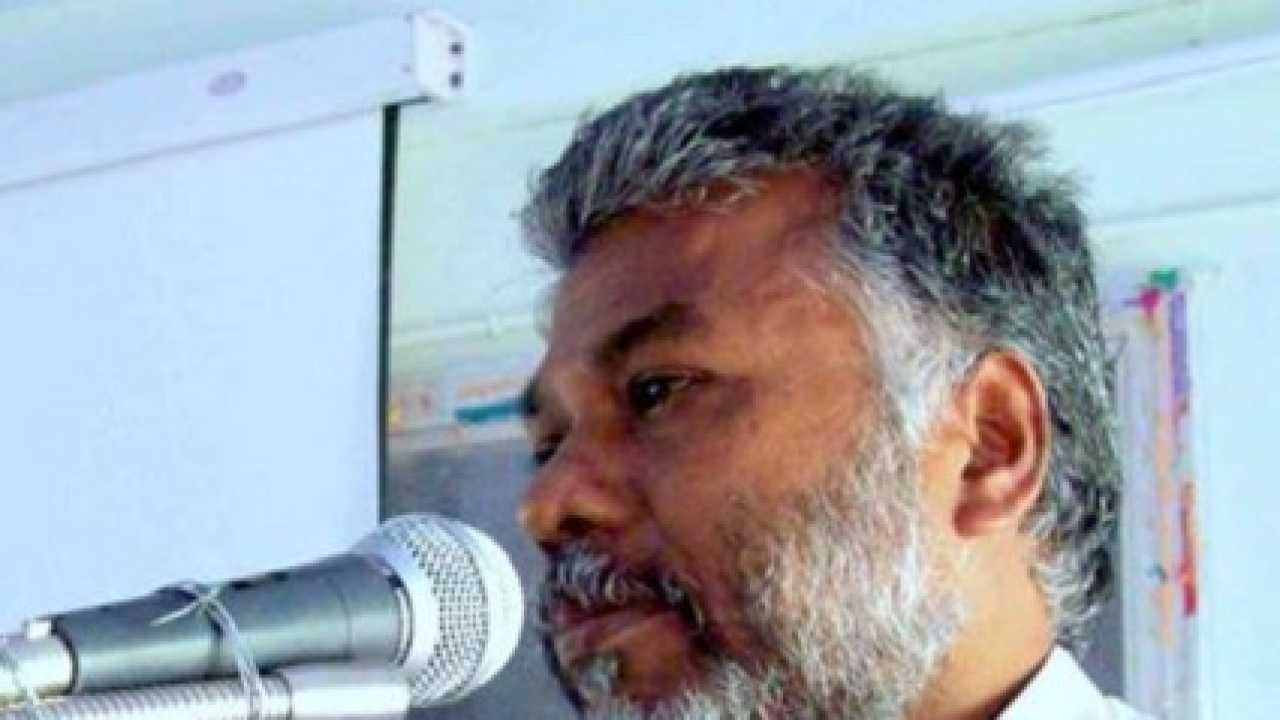
“Author Perumal Murugan has died. He is not God. So he is not going to resurrect. He also has no faith in rebirth. An ordinary teacher, he will live as P Murugan,” posted Perumal Murugan on his Facebook account on Tuesday.
In the prime of his creativity, the Tamil author, relentlessly hounded by Hindu fundamentalists and casteists, announced his decision to bid farewell to writing. To be muzzled into silence by the self-styled cultural and moral czars is not just tragic. Such acts of lumpen terror also pose difficult questions about the state of the nation. Like much of the rest of the world, India too has slid into the dangerously dark pit of cultural and moral terror. Our politicians and the ‘guardians’ of sexual and cultural morality would of course like us to believe that our civilisation – dating back to thousands of years – is an emblem of tolerance and diversity. But the truth is somewhat different: we are as intolerant as the rest of the world, as bigoted and blinkered as the cultural vigilantes strutting elsewhere.
How else can we explain the harrowing trial of Murugan, an extraordinary literary chronicler?
At the centre of the outrageous, yet all too common, row is Murugan’s novel Mathorubhagan, published four years ago. A fictional work of exploration, the novel, set a century ago, narrates the moving story of a childless peasant couple. Taunted by society for infertility, the couple seeks to explore the unconventional route of conception – the socially sanctioned practice of niyoga in ancient India. Every year at the Vaikasi Visakam car festival, childless women engage in consensual sex with men other than their husbands. The children who are born out of this carnivalesque act of sexual consummation are known as sami kodutha pillai (children from god). Murugan had heard about the custom through oral traditions.
It is this part of the novel that now has the Rashtriya Swayamsevak Sangh (RSS) frothing at the mouth. Ironically, since 2010, Mathorubhagan has been reprinted four times in Tamil and twice in English, following its translation as One Part Woman. All this while the novel’s so called morally offensive sexual permissiveness somehow seemed to have escaped the attention of the moral vigilantes. Suddenly alerted to the author’s ‘audacity’ in casting a slur on Hindu women, the Kailasanathar temple and Shiva, RSS foot soldiers resorted to doing what they do so often and so well: terrorise artists and authors through vandalisation and intimidation.
Little did it matter that Mahabharata, the epic valorised by Hindus, has recorded the practice of niyoga as it was performed at the instance of kings and queens. Queen Satyavati compels her son and the sage Vyasa to perform niyoga with the widows of her son Vichitravirya. The widows Ambika and Ambalika and one of their maids give birth to Dhritarashtram, Pandu and Vidura. Pandu convinces Kunti to have niyoga with gods and bear him children.
Last week, around 50 RSS members burnt Mathorubhagan in front of the police station, in Tiruchengode. They demanded Murugan’s arrest and banning the novel. On the night of January 8, advised by the police, Murugan fled his home town with his family. He was already receiving threatening phone calls. Inflammatory posters were put up across the town. Murugan offered to delete the offensive sections. But the moral brigade, sniffing blood, refused to give up the chase. A bandh was called and the situation continued to be tense.
How many times have we witnessed the re-enactment of these familiar scenes? The plot and the protagonists scripting the plot are unfailingly the same figures/groups. Only the sites of the performance change.
In his poignant Facebook post Murugan writes: “Other than those books that Perumal Murugan has compiled and published on his own, he withdraws all the novels, short stories, essays, and poetry he has written so far.
He says with certainty that none of these books will be on sale again.”
He signs off with these words: “Please leave him alone. Thanks to everyone.”
The author is Editor, dna of thought